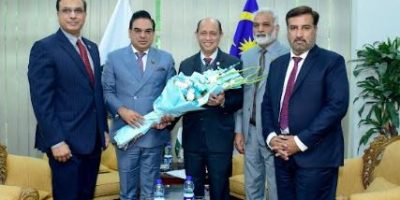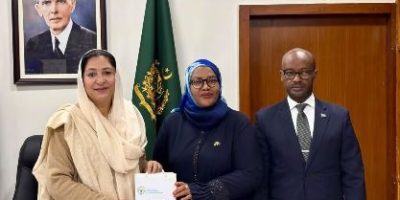PIAF warns of high inflation on proposed mini-budget

LAHORE: /DNA/ – The Pakistan Industrial and Traders Associations Front (PIAF) has opposed the imposition of more taxes, as the government is finalizing the mini-budget of Rs100 billion, planning to imposing more taxes on imports, besides slapping 17% sales tax on high-grade petrol to cover the expected shortfall of tax collection.
The PIAF chairman Faheem ur Rehman Sigol said that the regular attempt of economic managers to impose new taxes and increasing oil prices along with the hike in power and gas tariffs will ultimately harm the government’s overall move of reducing the production cost for the businesses.
Recently, the IMF also asked Pakistan to impose new taxes of Rs600 billion to achieve the tax-to-GDP ratio target of 9.5%. Possible shortfall in the coming months may expose the government to more pressure from the IMF.
Faheem ur Rehman Sigol said that slapping additional taxes on industrial raw material and essential items would lead to further hike in inflation which is already in double-digit.
Tax authorities have recently shared options with the government to bridge the shortfall by imposing taxes on duty-free imports and raising the additional customs duty to collect roughly Rs60 billion in taxes. They also include a reduction in the regulatory duty to allow imports aimed at compensating for the revenue loss. He added the additional customs duty is other than the standard customs duty that is imposed to raise more taxes. He said that the proposal of imposing 17% sales tax on high octane blending component (HOBC) was at an advanced stage, aimed at collecting Rs6 billion in the remaining period of current fiscal year.
The government is already charging a tax of Rs50 per litre on HOBC and motor spirit (petrol). The cost of HOBC (97 octane) is higher by Rs45 per litre than the 92-octane petrol.
The International Monetary Fund (IMF) has asked Pakistan to impose 17% sales tax on petroleum products in addition to the Rs50-per-litre levy. Any decision to impose the sales tax on high-quality petrol may be the first step towards that goal.
The Federal Board of Revenue could not achieve its October tax collection target of Rs534 billion, falling short by Rs22 billion, primarily because of contraction in imports. The monthly goal was missed despite 15% growth in collection over tax receipts of Rs445 billion in October last year. The collection of customs duty, which was the cornerstone of FBR’s performance earlier, remained below target for the fourth consecutive month in October.
Against the four-month target of Rs343 billion, the FBR collected Rs302 billion in customs duty – a gap of Rs41 billion. It was mainly due to the import restrictions as the duty collection on imports dropped by 10% in rupee terms despite appreciation of the greenback.
The government has set customs duty collection target of Rs1.150 trillion, which according to the Customs Department may be missed by Rs100 billion in the current fiscal year. It has come up with multiple options to bridge the gap.
A key proposal is to slap 2% additional customs duty on goods imported at zero duty, including those falling within the free trade agreements. This proposal may generate revenue of around Rs35 billion.
In the first four months of FY23, imports amounted to $21 billion, but nearly $10 billion, or 47%, of imports were duty free. Now, the government is considering targeting these imports for revenue generation.
However, many raw materials for manufacturing export goods are also imported at zero duty. According to reports, the FBR had proposed that the existing additional customs duty could be further increased by 1% to 2% to bridge the revenue shortfall. Maximum additional customs duty rate is 7%, which can be raised to 8%. He said the industry is the main victim of this International Monetary Fund (IMF) interference, as the donors’ involvement in Pakistan’s economic matters and dictations to the policymakers for taking harsh measures would add to the economic miseries of the country.
The PIAF Chairman said that Pakistan’s inflation rate is the highest among all the South Asian nations. He said that the world is moving towards alternative sources of electricity generation but the Pakistan government’s policies are contrary to it.
Pakistan is the most frequent customer of the IMF and the governments often depend on borrowing from the lending arm and accepted stringent conditions, despite the fact that this institution is merciless money lender, which has always forced Pakistan to adopt bad policies like new taxes in the budget, rupee depreciation and massive increases in the electricity and gas tariffs.
Related News

Pakistan, Malaysia target $4 billion trade, eye halal & IT Collaboration
ISLAMABAD, JAN 19 /DNA/ – Dato Muhammad Azhar Mazlan, the Malaysian High Commissioner to Pakistan,Read More

Rwanda, Pak vow to strengthen cooperation in education, IT
A key highlight of the meeting was the reaffirmation of their strong resolve to advanceRead More


Comments are Closed